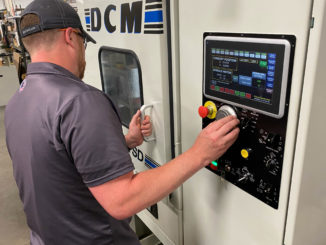A Column by Dr. Stan Trout
The title for this article is a quote from my friend Bob Wolf during a recent interview by The Gold Report. When asked if he might consider starting his own magnet manufacturing company to fill the current void in the US magnet industry, Bob said, “The people who know how to make magnets fall into three categories: retired, senile and dead.” As someone who thinks he could still make a magnet and doesn’t fit into any of these three categories, I wasn’t quite sure how to take his comment at first. But after some further reflection, I do think Bob’s comment points to a serious concern, even if it was said in a humorous way.
The serious problem Bob describes is called collective memory or tribal knowledge. It is the idea that a few individuals in a group will be able to recall enough information about a topic by pooling their individual memories to be able to piece things together to form a clear picture. This is a truly synergistic effect where the net result is greater than the sum of the isolated parts. We can sometimes observe this effect in social situations when people try to remember the salient facts about a movie, a TV show, a sporting event or a song. In a manufacturing environment, it means that enough people have been around long enough that they can recall seeing a similar problem previously. And if they are lucky, they may also remember the solution!
Collective memory is a vital characteristic of any industry, but it is of particular interest today in the magnet industry. That’s because historically precious little information was written down and even less was published. This practice, originally born out of a need or a perceived need to keep information confidential, is not serving us well today. It was probably helpful when the magnet industry was thriving outside of China. But today it holds us back as we try to resuscitate our industry. It means that we will likely go through some pain as we scale-up.
It also raises two obvious and related questions: Are we inevitably doomed to experience extra pain as we try to recreate things that may have been forgotten? Is there anything we can do to reduce or eliminate the number of mistakes we might make? I think the answers are no to the first question and yes to the second question. Let me explain.
While we can all recite the problems we face today with lack of domestic manufacturing, we have one clear advantage. That is, depending on how you count, the lull in magnet manufacturing in the US was perhaps 10 to 20 years. This means that many people are still around who can recall some very salient information. Some may be in other industries and some may be retired, but this is a resource we need to tap. Some people can be lured back into the industry and many retirees can be interviewed so that we can capture their wisdom while we can.
We also have an excellent opportunity to train young workers in the field, again leveraging the knowledge of older workers skilled in the art, so that we have a new generation to carry on the work.
We are lucky that we have essentially only skipped a single generation of knowledge workers in the magnetics industry. Things would be far worse had the dry spell lasted longer. Our opportunity to transfer the knowledge-base is limited to perhaps one decade or two. The key is to recognize the uniqueness of our opportunity and to act sooner, rather than later.
 About the Author
About the Author
Dr. Stan Trout has more than 30 years experience in the permanent magnet and rare earth industries. Stan is a contributing columnist for Magnetics Business and Technology magazine and the Director of the Magnet Business for Molycorp Minerals, LLC. He can be reached at strout@ieee.org.


